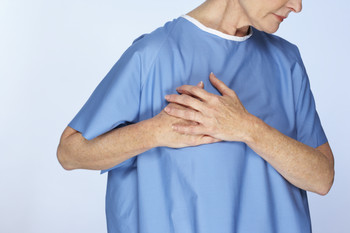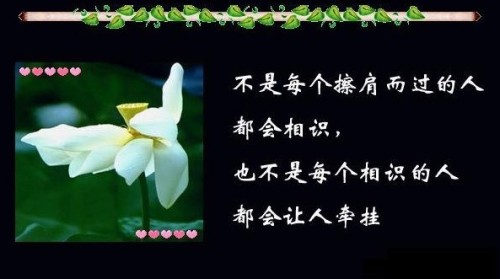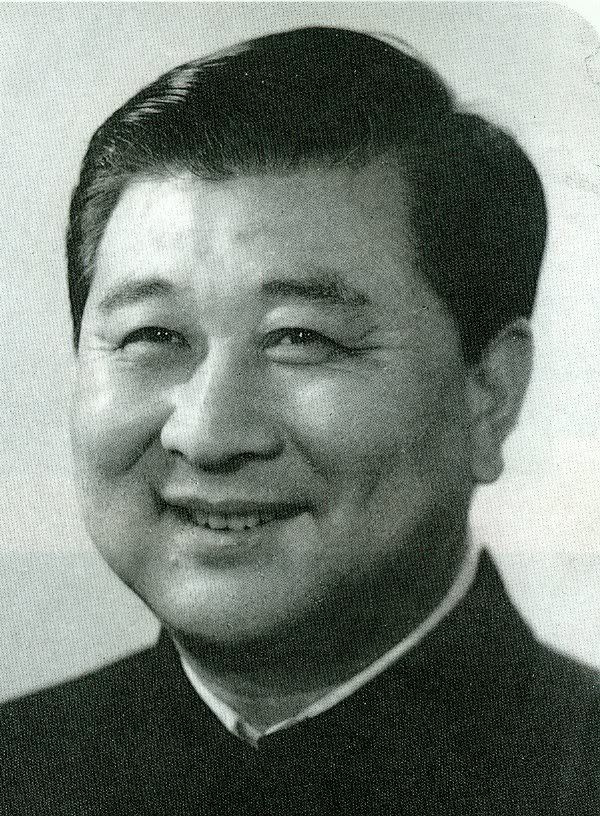By Melanie Haiken, Caring.com senior editor
Annual checkups and tests such as colonoscopies and PSA assays are important, but it's not a good idea to rely on tests alone to protect you from cancer. It's just as important to listen to your bo dy and notice anything that's different, odd, or unexplainable. (You should also listen to those close to you, such as a wife or partner, because others sometimes notice things we're unaware of—or don't want to admit.) You don't want to join the ranks of cancer patients who realize too late that symptoms they'd noticed for a long time could have sounded the alarm earlier, when cancer was easier to cure.
dy and notice anything that's different, odd, or unexplainable. (You should also listen to those close to you, such as a wife or partner, because others sometimes notice things we're unaware of—or don't want to admit.) You don't want to join the ranks of cancer patients who realize too late that symptoms they'd noticed for a long time could have sounded the alarm earlier, when cancer was easier to cure.
Here, some signs of cancer that are commonly overlooked:
1. Upset stomach or stomachache
One of the first signs colon cancer patients remember experiencing when they look back is unexplained stomach aches. Those with pancreatic cancer describe a dull ache that feels like it's pressing inward. Many liver cancer patients say they went in complaining of stomach cramps and upset stomachs so frequently that their doctors thought they had ulcers. Liver cancer patients and those with leukemia can experience abdominal pain resulting from an enlarged spleen, which may feel like an ache on the lower left side.
If you have a stomachache that you can't attribute to a digestive problem or that doesn't go away, ask your doctor to order an ultrasound. Finding a liver or pancreatic tumor early can make all the difference in treatment.
2. Chronic "acid stomach" or feeling full after a small meal
The most common early sign of stomach cancer is pain in the upper or middle abdomen that feels like gas or heartburn. It may be aggravated by eating, so that you feel full when you haven't actually eaten much. What's particularly confusing is that the pain can be relieved by antacids, confirming your conclusion that it was caused by acid in the stomach, when it's more than that. An unexplained pain or ache in lower right side can be the first sign of liver cancer, known as one of the "silent killers." Feeling full after a small meal is a common sign of liver cancer as well.
If you have frequent bouts of acid stomach, an unexplained abdominal ache, or a full feeling after meals even when you're eating less than normal, call your doctor.
3. Unexplained weight loss
If you notice the pounds coming off and you haven't made changes to your diet or exercise regime, it's important to find out why. Unexplained weight loss can be an early sign of colon and other digestive cancers; it can also be a sign of cancer that's spread to the liver, affecting your appetite and the ability of your body to rid itself of waste.
4. Jaundice
Pancreatic cancer, another one of the "silent killers," is often discovered when someone notices jaundice and asks the doctor to do a battery of tests. Jaundice is most commonly thought of as a yellowing of the skin or whites of the eyes, but darker-than-normal urine that's not the result of dehydration is also a sign. Clay-colored stools are another little-known sign of jaundice. Oddly, jaundice can also cause itching, because the bile salts in the bloodstream cause the skin to itch. Some people with pancreatic cancer say they noticed the itching before they noticed the jaundice itself.
5. Wheezing or shortness of breath
One of the first signs lung cancer patients remember noticing when they look back is the inability to catch their breath. "I couldn't even walk to my car without wheezing; I thought I had asthma, but how come I didn't have it before?" is how one man described it. Shortness of breath, chest pain, or spitting blood are also signs of testicular cancer that's spread to the lungs.
6. Chronic cough or chest pain
Several types of cancer, including leukemia and lung tumors, can cause symptoms that mimic a bad cough or bronchitis. One way to tell the difference: The problems persist, or go away and come back again in a repeating cycle. Some lung cancer patients report chest pain that extends up into the shoulder or down the arm.
7. Frequent fevers or infections
These can be signs of leukemia, a cancer of the blood cells that starts in the bone marrow. Leukemia causes the marrow to produce abnormal white blood cells, which crowd out healthy white cells, sapping the body's infection-fighting capabilities. Doctors sometimes catch leukemia in older adults only after the patient has been in a number of times complaining of fever, achiness, and flu-like symptoms over an extended period of time.
8. Difficulty swallowing
Most commonly associated with esophageal or throat cancer, having trouble swallowing is sometimes one of the first signs of lung cancer, too. Men diagnosed with esophageal cancer look back and remember a feeling of pressure and soreness when swallowing that didn't go away the way a cold or flu would have. Consult your doctor also if you have a frequent feeling of needing to clear your throat or that food is stuck in your chest; either of these can signal a narrowing of the esophagus that could mean the presence of a tumor.
9. Chronic heartburn
If you just ate half a pizza, heartburn is expected. But if you have frequent episodes of heartburn or a constant low-level feeling of pain in the chest after eating, call your doctor and ask to be screened for esophageal cancer. Gastroesophageal reflux disease (GERD)—a condition in which stomach acid rises into the esophagus, causing heartburn and an acidic taste in the throat—can trigger a condition called Barrett's esophagus, which can be a precursor of esophageal cancer.
10. Swelling of facial features
Some patients with lung cancer report that they noticed puffiness, swelling, or redness in the face. The explanation for this is that small cell lung tumors commonly block blood vessels in the chest, preventing blood from flowing freely from the head and face.
11. Swollen lymph nodes or lumps on the neck, underarm, or groin
Enlarged lymph nodes indicate changes in the lymphatic system, which can be a sign of cancer. For example, a lump or an enlarged lymph node in the neck or underarm is sometimes a sign of thyroid, head, or throat cancer. A painless lump on the neck, underarm, or groin can be an early sign of leukemia.
12. Excessive bruising or bleeding that doesn't stop
This symptom usually suggests something abnormal happening with the platelets and red blood cells, which can be a sign of leukemia. One man with leukemia noticed that his gums bled when he brushed his teeth; another described bruising in strange places, such as on his fingers and hands. The explanation: Over time, leukemia cells crowd out red blood cells and platelets, impairing the blood's ability to carry oxygen and clot.
13. Weakness and fatigue
"I had to stop halfway across the yard and sit down when I was mowing the lawn," said one man when describing the fatigue that led to his discovery of pancreatic cancer. Generalized fatigue and weakness is a symptom of so many different kinds of cancer (and other ills) that you'll need to look at it in combination with other symptoms. But any time you feel exhausted without explanation and it doesn't respond to getting more sleep, talk to your doctor.
14. Rectal bleeding or blood in the stool
"I thought it was hemorrhoids" is one of the most common statements doctors hear when diagnosing colorectal cancer. Blood in the toilet alone is reason to call your doctor and schedule a colonoscopy. Another sign of blood in the stool many people miss is stools that are darker in color.
15. Bowel problems
Constipation, diarrhea, and changes in stools can all be signs of cancer. As with many other cancer symptoms, the way to tell if this is cause for concern is if it goes on for more than a few days without a clear cause, such as flu or food poisoning. People diagnosed with colon cancer say they noticed more frequent stools, as well as a feeling that their bowels weren't emptying completely. One of the early signs of pancreatic cancer is fatty stools, which can be recognized as frequent, large stools that are paler than normal and smelly. This is a sign that your body's not absorbing your food normally, and it should be brought to your doctor's attention.
16. Difficulty urinating or changes in flow
Hands-down, the most common early sign of prostate cancer is a feeling of not being able to start peeing once you're set to go. Many men also report having a hard time stopping the flow of urine, a flow that starts and stops, or a stream that's weaker than normal. Any of these symptoms is reason to call your doctor for an exam and a screening test for prostate-specific antigen (PSA).
17. Pain or burning during urination
This symptom can also indicate a urinary tract infection or sexually transmitted disease, of course, but in any case it warrants an immediate trip to the doctor. This symptom is often combined with the feeling that you need to go more often, particularly at night. These same symptoms can also indicate inflammation or infection in the prostate or benign prostatic hyperplasia, the name for what happens when the prostate grows bigger and blocks the flow of urine. However, you need to get checked out to tell the difference.
18. Blood in urine or semen
Men are often warned about blood in the urine, but they may not realize that blood in semen is also a danger sign for prostate cancer. Blood in the urine or semen isn't always visible as blood; urine may just be a pink, dark red, or smoky brown color, while blood in the semen may just look like a pinkish streak.
19. Erection problems
As prostate cancer progresses, another very common sign is difficulty getting or sustaining an erection. This can be a difficult subject to talk about, but it's important to bring it to your doctor's attention. It could be a sign of sexual dysfunction with another cause, of course, but it's a reason to have an exam and a PSA test.
20. Pain, aching, or heaviness in the groin, hips, thighs, or abdomen
One sign of prostate cancer is frequent pain in the hips, upper thighs, or the lowest part of the back. Men with testicular cancer report noticing a heavy, aching feeling low in the belly or abdomen, or in the scrotum or testicles themselves. They sometimes describe it as a feeling of downward pulling or as a generalized ache throughout the groin area. Prostate cancer that has spread to the lymph nodes often makes itself known as discomfort in the pelvis or swelling in the legs.
21. Testicular swelling or lump
The lumps that indicate testicular cancer are nearly always painless. It's also common for a testicle to be enlarged or swollen, but lacking any specific lump that you can see or feel. Some men report feeling discomfort from the enlargement, but not an outright pain.
22. Unexplained back pain
Back pain can mean all sorts of things, of course—most often pulled muscles or disc problems. But unexplained, persistent back pain can be an early sign of cancer as well, so get it checked out. Pain in the lower back and hips can be a sign of prostate cancer, while pain in the upper back can signal lung cancer. A pain in the upper abdomen and back is one of the few early signs of pancreatic cancer.
23. Scaly or painful nipple or chest, nipple discharge
Men do get breast cancer; they also get a condition called gynecomastia, which is a benign lump in the breast area. Breast cancer is usually detected as a lump, but if it's spreading inward it can also cause chest pain. Other signs of breast cancer include patches of red, scaly, or dimpled skin or changes to the nipple such as turning inward or leaking fluid. Bring any lump, swelling, or skin or nipple problem, or any chest pain, to your doctor's attention.
24. A sore or skin lump that doesn't heal, becomes crusty, or bleeds easily
Most of us know to watch moles for changes that might indicate skin cancer. But other signs, such as small waxy lumps or dry scaly patches, are easier to miss. Familiarize yourself with the different types of skin cancer—melanoma, basal cell carcinoma, and squamous cell carcinoma—and be vigilant about checking skin all over the body for odd-looking growths or spots.
25. Changes in nails
Unexplained changes to the fingernails can be a sign of several types of cancer. A brown or black streak or dot under the nail can indicate skin cancer, while newly discovered "clubbing," which means enlargement of the ends of the fingers, with nails that curve down over the tips, can be a sign of lung cancer. Pale or white nails can be an indication that your liver is not functioning properly, sometimes a sign of liver cancer
 (This article is directed from Garden Mandy. Thanks.)
(This article is directed from Garden Mandy. Thanks.)






























